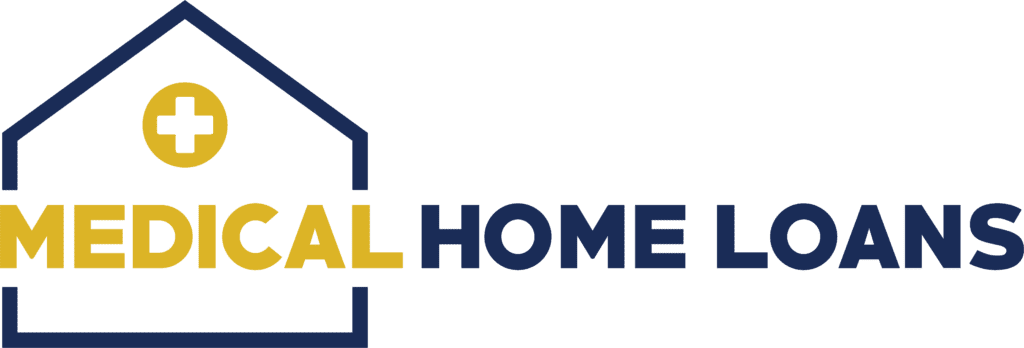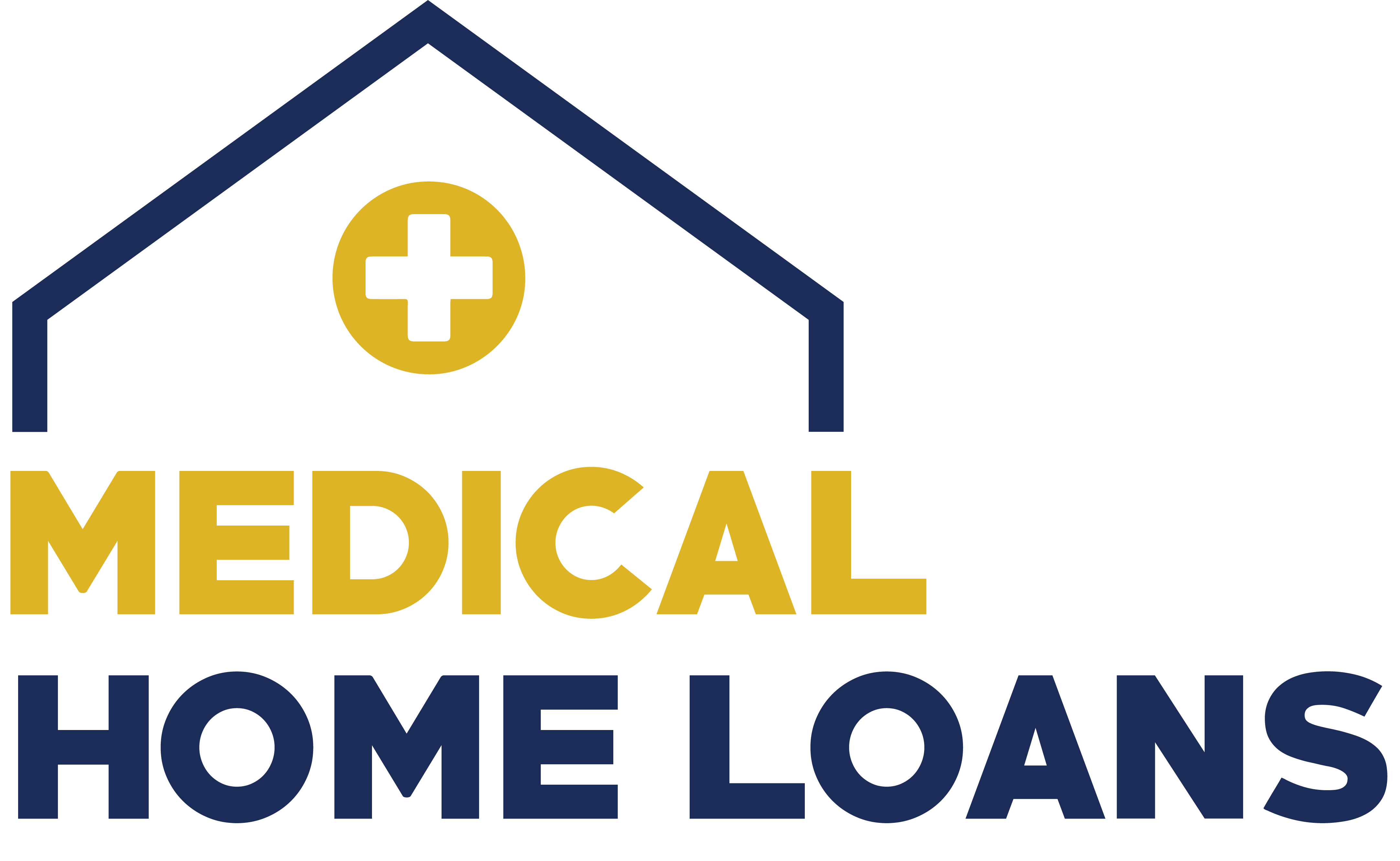When buying or refinancing a home, closing costs can sometimes cause some unexpected issues if you aren’t prepared for it. You can expect to incur similar closing costs with a Medical Home Loan as you would with a conventional or government-sponsored mortgage. If you’re a first-time home buyer, closing costs can come as a surprise if you aren’t prepared for it.
Typical closing costs for a physician mortgage loan
 Closing costs can specifically be complicated when shopping for a mortgage loan. All lenders have different fees that they estimate from 3rd parties, and for the most part, many of them are chosen by your realtor when they write the contract.
Closing costs can specifically be complicated when shopping for a mortgage loan. All lenders have different fees that they estimate from 3rd parties, and for the most part, many of them are chosen by your realtor when they write the contract.
On average, you can expect closing costs to be around 1.5% to 5% of your home’s purchase price (A lot of this varies by state and county). This would also include costs such as prepaid items like taxes, insurance, and prepaid interest.
Example: On a $500,000 home, your total closing costs might span from $7,500 to $25,000. That could put quite a hole in your pocket!
It’s worth noting that in most states, however, it’s safer to assume 1.5% to 2% of the purchase price. The highest closing costs referenced above are generally dedicated to properties located in New York.
Before you decide purchasing a home isn’t in the cards, read on for solutions!
Closing costs for physician loans: What to expect
As a medical professional (doctor, dentist, podiatrist, nurse practitioner, veterinarian) or another eligible medical professional, you have a definite advantage over the rest of the population. Medical  Home Loans come with low to no down payment; most offer reduced and sometimes no private mortgage insurance (PMI). Sure, there are other perks, such as relaxed underwriting surrounding student loan debt, but you’ll still have to pay third-party closing costs just like everyone else getting a mortgage.
Home Loans come with low to no down payment; most offer reduced and sometimes no private mortgage insurance (PMI). Sure, there are other perks, such as relaxed underwriting surrounding student loan debt, but you’ll still have to pay third-party closing costs just like everyone else getting a mortgage.
Here are some common closing costs you might see when applying for a physician loan:
Almost every lender will charge a processing and/or underwriting fee at closing. Generally, these fees are between $1,000 and $1,500 and are only charged if and when you close your loan (at the end).
You might also see closing costs related to loan origination or underwriting, in-house attorney fees, and credit report fees. All of these are associated directly with the lender you’re using.
Third-Party Fees
- Appraisal An appraisal verifies the home’s value and ensures you aren’t borrowing more than the home is worth. These can range between $500 and $2,000 and up, depending on the size of the home you’re purchasing and if you’re in what’s considered a unique, more complex area.
- Home inspection costs generally won’t be on your loan estimate, but that doesn’t mean you shouldn’t get one with your real estate agent. They can be a great negotiating tool if there’s something wrong with the property and can discover things not seen by the naked eye. These generally run between $250 and $1,000, depending on the area and size of the property.
- Title/Escrow fees. A title search will confirm who the actual owner of the home is. Generally, your real estate agent will choose this company based on their relationship with a given. The escrow company will be responsible for lining the numbers up and ensuring everyone gets paid correctly. Many times the escrow company is the same as the title company.
- Survey costs. A survey will map out the property, detail whether structures meet legal codes and confirm the property’s legal description and history.
Prepaid expenses
- Homeowner’s insurance. Lenders will require you to pay 12 months of insurance up front. Depending on your area, this can be more expensive if you’re in an earthquake area, flood zone, hurricane, or other designated disaster area.
- Property taxes. Lenders will collect prepaid property taxes that are also included in your monthly payment so that they will pay them for you when taxes are due.
- Interest charges. Your first payment is generally due in the second month you own the property and will be due on the first of the month. To do this, they collect interest for the month you close. i.e. if you close on the 5th and there are 30 days in the month, you will pay 25 days of interest at closing, and then your 1st payment won’t be due for another 30 days after that.
Other closing costs
- Discount points. Discount points are essentially prepaid interest. Your lender should have given you additional options in the beginning to potentially avoid these costs…though it’s not always possible to avoid.
- Transfer tax. This is a fee imposed by a state or local jurisdiction for the property transfer. Most real estate agents will ask that the seller pay them.
 How to avoid all the additional upfront out-of-pocket expenses
How to avoid all the additional upfront out-of-pocket expenses
If you’ve made it this far, congrats! Here are some things you can do to avoid paying these costs out of pocket. After all…one of the biggest benefits of a Medical Home Loan is that you don’t have to come up with so much money out of pocket!
- Compare closing costs between lenders
- When asking around about rates, be sure to ask the lenders if the rate they are quoting you include points and what their general closing costs are to do the loan
- Don’t be afraid to make a change– Just because a real estate agent referred you to someone doesn’t mean you have to use them…and always ask questions if you don’t understand!
- Ask the seller to pay your closing costs– This is a valuable tool. If you don’t want to go line by line, ask them to pay 2% of the purchase price towards closing costs. You’ll find it’s an inexact science early on to get the final numbers, so it’s easier just to ask for a percentage toward closing.
- Ask the lender for a credit– Sometimes, it makes sense to take a higher interest rate upfront in exchange for the lender contributing towards your closing costs, especially if you’re planning on refinancing within a few years.
Lastly, if it’s just too hard to make ends meet and too tight, ask your realtor if they would be willing to kick in a little bit of their commission. This, however, should be the VERY last choice as realtors work very hard for their money, but if it’s the only way to make the deal work, most would be happy to oblige to help get you into your new home.







